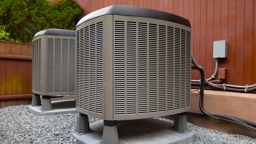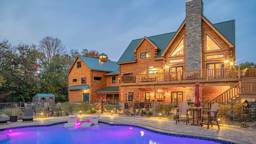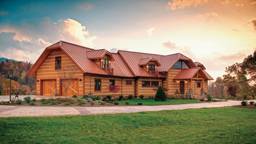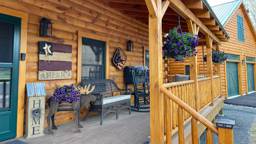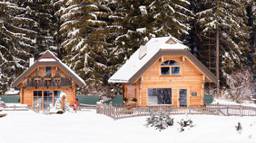
Windows
When making your window selection, look for products with a low U-factor, a low air-leakage rating and a frame made of fiberglass or composite wood for the best insulating properties. Upgrade your current setup with caulking and weather-stripping around air leaks and by adding a protective solar film, exterior shades or UV-diffusing window covering.
Lighting
Lighting can be one of the most aggressive energy vampires in your home, but switching to LEDs can help bring your electric costs down significantly. An average LED bulb should last close to 20 years — a big plus in a 20- to 30-foot-high vaulted ceiling! LEDs use 80 percent less energy than standard incandescent bulbs and last 15 times longer.
Heating and Cooling
Heating and cooling systems account for more than half of your home’s electricity consumption. The more efficient your systems are, the less they will cost to run and the more you will save on utility bills. Consider high-efficiency alternatives beyond traditional HVAC systems, such as radiant in-floor systems, solar, geothermal heating or freestanding masonry heaters.
Plumbing
On-demand tankless water heaters keep energy costs down by not having to warm 40 to 80 gallons of water day and night, plus they take considerably less room than traditional hot water tanks. Ultra-efficient toilets can conserve as much as five gallons per flush. A low-flow showerhead can save up to five gallons per minute, and aerators can reduce usage by up to five gallons each day.
Lifestyle Changes
None of these suggestions will matter if you don’t do your part. Turning off the water while you brush your teeth, shave or wash dishes will save two to three gallons per minute, and shortening your shower by just two minutes can save 10 gallons! Turn your lights off when you leave the room, and turn down the heat/air temps on your thermostat. A programmable/app-controlled model will let you set it and forget it.



